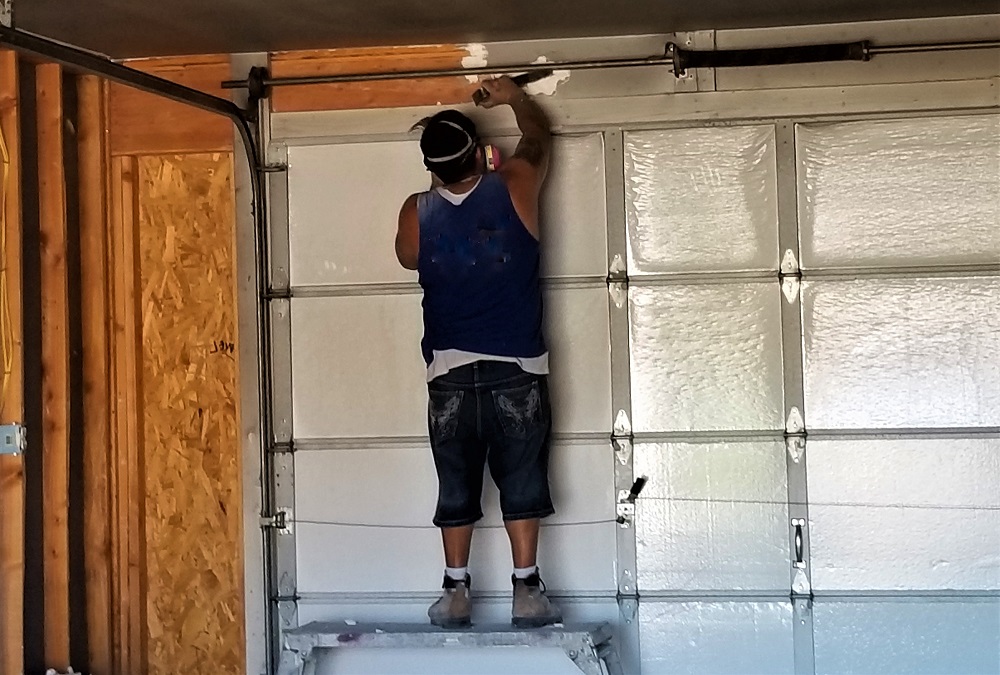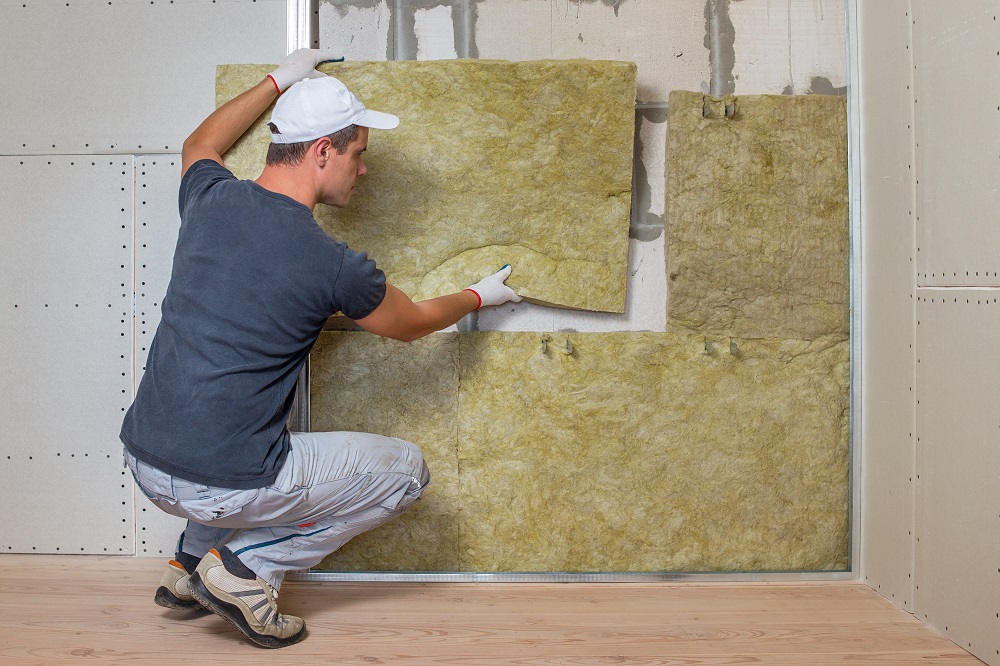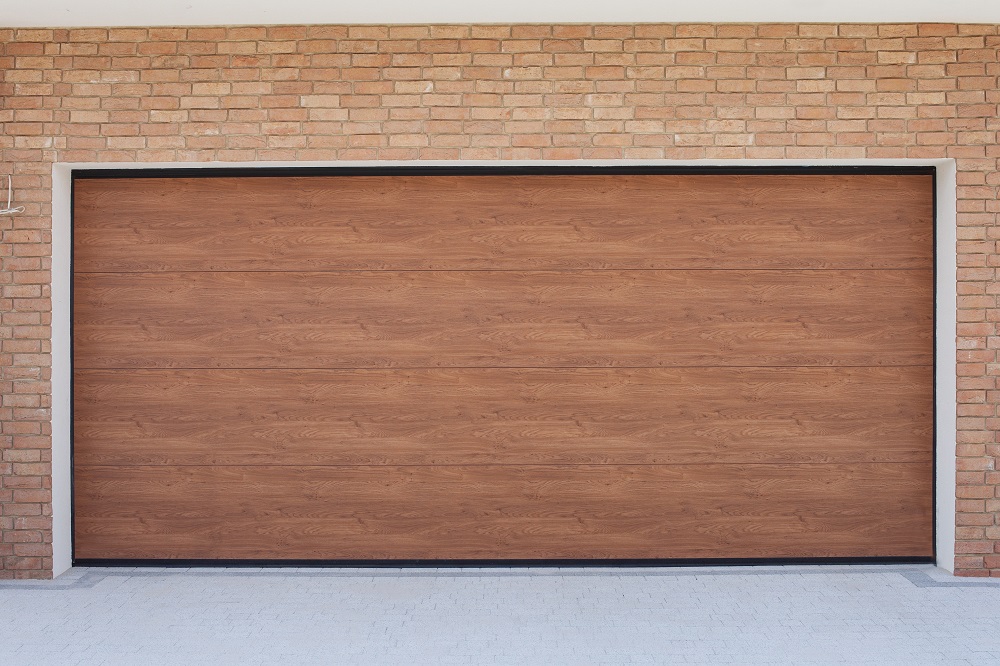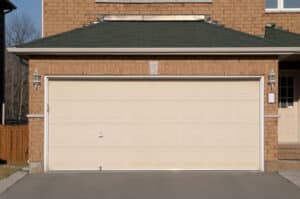What Kind of Insulation Is Best for Garage Doors in Lakewood Homes?
Choosing the best insulation for your garage door in Lakewood homes is essential to improve comfort, energy efficiency, and reduce long-term costs. A well-insulated garage door helps control temperature fluctuations and can lead to energy savings, especially in a climate like Lakewood’s.
At Select Garage Doors, we specialize in helping homeowners choose and install the best insulation for their needs. If you want to make your garage more energy-efficient and comfortable, contact us today for expert advice and installation.
Key Takeaways
- It helps keep your garage cooler in summer and warmer in winter, creating a more comfortable space year-round.
- Proper insulation reduces the load on your home’s heating and cooling systems, helping to lower your energy bills.
- Insulation reduces external noise and helps block sounds from inside the garage.
- Insulation protects your belongings from temperature fluctuations.
- Insulated doors are less affected by wear and tear from weather conditions.
Why Insulating Your Garage Door Is Important

If your garage is attached to your home, an uninsulated garage door can directly impact your living space’s temperature, making it harder to regulate comfort levels throughout your house.
Additionally, uninsulated doors can let in outside noise, which can be bothersome, especially if you live in a busy area of Lakewood.
Key Benefits of Insulating Your Garage Door:
- Better Temperature Control: Insulation helps keep the garage cooler in summer and warmer in winter, making it more comfortable year-round.
- Lower Energy Bills: By maintaining a more consistent temperature, insulation helps reduce the load on your home’s heating and cooling system, leading to lower energy costs.
- Noise Reduction: Insulation acts as a sound barrier, helping block external noise from reaching the inside of your home. It also helps minimize noise from inside the garage.
- Protection for Your Belongings: If you store sensitive items in your garage, such as electronics, furniture, or food, insulation helps protect them from temperature extremes.
- Longer Door Lifespan: Insulating your garage door helps protect it from the elements, reducing wear and tear and potentially extending its lifespan.
Types of Insulation for Garage Doors
There are different types of insulation materials available, and choosing the best one depends on your specific needs. Here’s an overview of the most common insulation types for garage doors:
1. Polystyrene (EPS) Insulation
Polystyrene is a rigid foam that is often used in two-layer steel doors. It’s lightweight and cost-effective, making it a common choice for many homeowners. This insulation is an excellent option for those who need moderate thermal resistance and want to stick to a budget.
Pros:
- Affordable: One of the least expensive insulation materials available.
- Easy to Install: Polystyrene is easy to cut and fit into the door panels.
- Durable: Resistant to moisture and won’t degrade easily.
Cons:
- Limited insulation value: Polystyrene has a lower R-value compared to other insulation types like polyurethane, which means it is less effective in extreme temperatures.
2. Polyurethane Foam Insulation
Polyurethane foam insulation is denser and provides excellent thermal performance. This material is injected between the door panels and expands to fill gaps, creating a solid barrier that prevents air from passing through. Polyurethane is a higher-end option and offers superior insulation.
Pros:
Superior Insulation: Polyurethane offers the highest R-value per inch of thickness, making it one of the most efficient insulation materials for garage doors.
- Noise Reduction: The foam also provides significant soundproofing.
- Air Tight Seal: It expands to fill all gaps, creating a tight, energy-efficient seal.
Cons:
- Higher Cost: Polyurethane is more expensive than polystyrene or fiberglass insulation.
- Professional Installation: Because of its foam form, polyurethane may require professional installation to ensure the best results.
3. Fiberglass Insulation
Fiberglass insulation is often available in batts or rolls and is commonly used in garages for its affordability. Fiberglass is effective at maintaining a stable temperature in the garage but doesn’t provide as much insulation as polyurethane or polystyrene.
Pros:
- Affordable: One of the most cost-effective insulation materials.
- Easy to Install: DIY kits are available that make installation simple for homeowners.
- Moisture Resistant: Fiberglass is naturally resistant to moisture, so it won’t degrade if exposed to water.
Cons:
- Less Effective in Extreme Temperatures: It doesn’t offer the same high R-value as polyurethane and may be less effective in extreme temperatures.
- Can Cause Irritation: Fiberglass can irritate the skin and lungs, so proper handling and safety measures are necessary during installation.
4. Reflective or Radiant Barrier Insulation
Reflective insulation works differently from foam or fiberglass insulation. It reflects radiant heat away from the garage, which helps prevent heat gain during summer months. This material is typically installed as a foil on the door’s surface.
Pros:
- Effective in Hot Climates: Reflective insulation works best in hot climates by reflecting heat from the sun away from your garage.
- Lightweight: It doesn’t add much weight to the door.
- Cost-Effective: Reflective insulation is generally cheaper than other insulation types.
Cons:
- Less Effective in Cold Weather: Reflective insulation doesn’t help keep the garage warm in the winter as effectively as foam-based insulation.
- Limited Thermal Resistance: Provides some insulation but not as much as polyurethane or fiberglass.
Which Type of Insulation Is Best for Lakewood Homes?
Lakewood experiences both warm summers and cooler winters, which means you’ll need insulation that performs well across a range of temperatures. For homeowners looking for maximum energy savings, polyurethane is the best option. It provides superior insulation, keeping your garage cool in the summer and warm in the winter.
If you’re working with a smaller budget, polystyrene or fiberglass may be sufficient, especially if your garage is detached from the house. For those who are primarily concerned with keeping the garage cooler during the summer, reflective insulation can be an excellent choice.
Other Factors to Keep in Mind
In addition to the insulation type, there are several other factors you should consider when choosing insulation for your garage door:
Door Type: Some garage doors come with built-in insulation. If you’re upgrading or installing insulation after the fact, make sure the material fits your door’s design.
- Installation: While some insulation types can be installed by homeowners, others, like polyurethane foam, require professional installation for the best results.
- Budget: Insulation costs vary depending on the material and installation fees, so it’s important to balance cost with desired performance.
Upgrade Your Garage Door Insulation Today
Choosing the right insulation for your garage door impacts your home’s comfort and energy efficiency. For Lakewood homeowners, polyurethane provides the best thermal performance, while polystyrene and fiberglass are budget-friendly alternatives.
Adding insulation to your garage door improves comfort, reduces energy costs, and enhances overall performance. Select Garage Doors is here to help you make the best choice for your home.
Ready to upgrade your garage door insulation? Call us today for expert advice and professional installation!
REQUEST A QUOTE

Our Services
Service Areas
Service Areas
WE SERVICE COLORADO SPRINGS, PARKER, LAKEWOOD AND SURROUNDING AREAS


 Superior Insulation: Polyurethane offers the highest R-value per inch of thickness, making it one of the most efficient insulation materials for garage doors.
Superior Insulation: Polyurethane offers the highest R-value per inch of thickness, making it one of the most efficient insulation materials for garage doors. Door Type: Some garage doors come with built-in insulation. If you’re upgrading or installing insulation after the fact, make sure the material fits your door’s design.
Door Type: Some garage doors come with built-in insulation. If you’re upgrading or installing insulation after the fact, make sure the material fits your door’s design.



